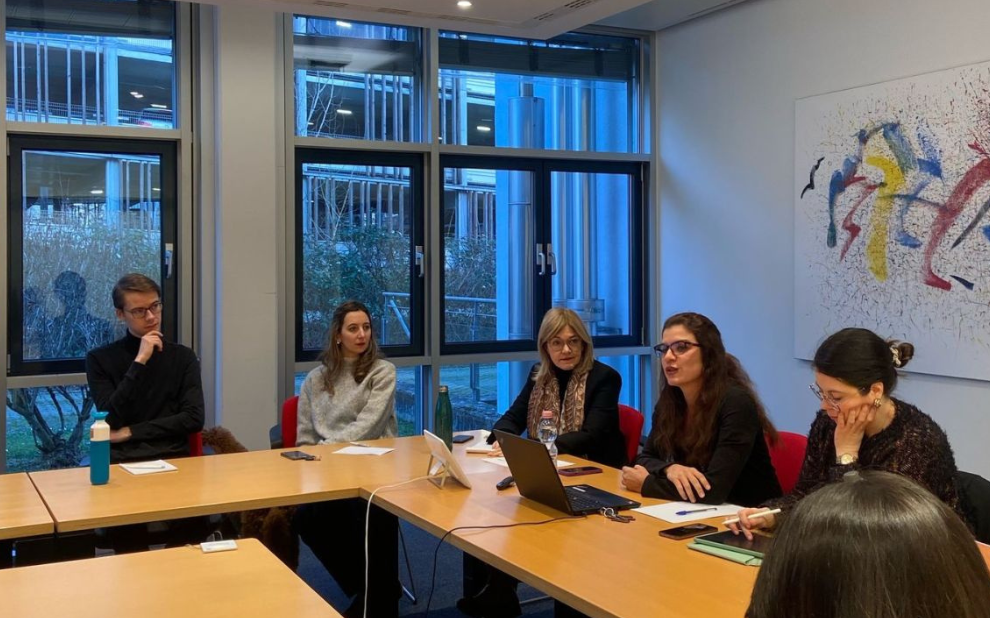Research on narratives and strategies of latin american States presented in Germany
FGV Rio Law Professor Presents the Work “Narrativas y estrategias de América Latina ante los Tribunales Internacionales”

Professor Paula Wojcikiewicz Almeida, coordinator of the Center for Global Law Research and the Jean Monnet Center of Excellence (co-financed by the European Union) at FGV Rio Law, was awarded a postdoctoral fellowship to conduct her research at the Max Planck Institute for Comparative Public Law and International Law (MPIL) as a visiting researcher in Heidelberg, Germany. A decade after her first stay at MPIL in 2014, where she worked on the book 'Latin America and the International Court of Justice: Contributions to International Law,' co-authored with Prof. Jean-Marc Sorel (IREDIES - Paris 1 - Sorbonne), Professor Paula Almeida returned to the institute to work on her research project titled 'LATIN TALES: Narratives of Latin American States before International Courts and Tribunals,' conducted at the Center for Global Law Research at FGV Rio Law.
During her stay in February, she participated in enriching academic discussions and presented the work 'Narrativas y estrategias de América Latina ante los Tribunales Internacionales' at the 317th Ibero-American Colloquium. Additionally, she had significant exchanges on ongoing research and the latest trends in International Law with distinguished academics in the field. Professor Paula W. Almeida was especially welcomed by Professor Dr. Armin von Bogdandy, director of the MPIL, and researcher Dr. Mariela Morales in a vibrant academic setting.
The Center for Global Law Research at FGV Rio Law celebrates the research partnership with the Max Planck Institute, which was founded in 1924 and has been operational since 1949 in Heidelberg. The institute focuses on research in International Public Law, European Union Law, and Comparative Constitutional Law, as well as providing advisory services to German, European, and international institutions. Since 2004, MPIL has hosted editions of the Ibero-American Colloquium, which, through an interdisciplinary group and with the participation of invited researchers, promotes the scientific production of Latin America and its dissemination among the scientific community in Germany and the European Union.
Leia também
